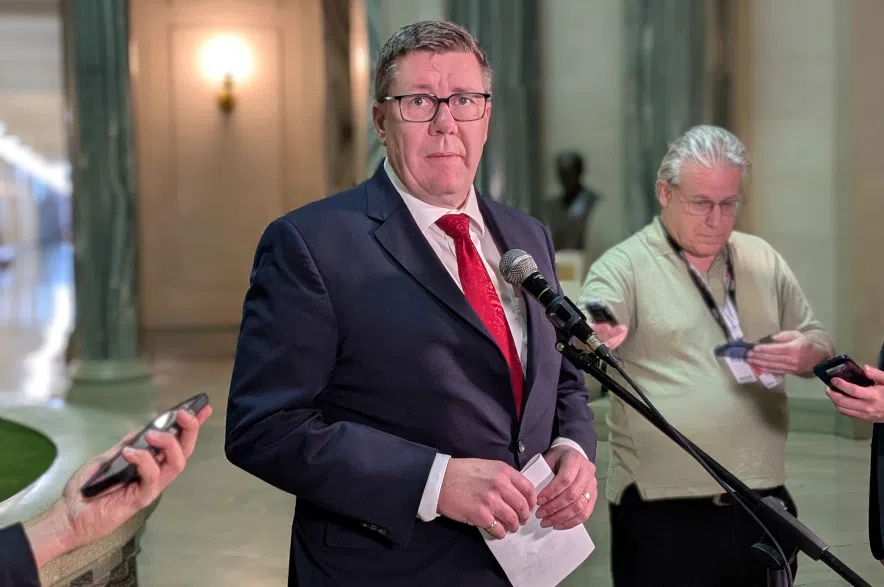From the next province over, Premier Scott Moe gave a nod of approval Thursday morning to the pipeline deal signed between the Province of Alberta and the federal government.
The memorandum of understanding commits the two parties to working together on building a pipeline to the West Coast, and the federal government could adjust the tanker ban to make it happen.
Read more:
- Alberta-Ottawa pipeline accord unlikely to be “champagne-popping moment:’ Enserva CEO
- Cenovus CEO touts ‘new day’ for oil and gas as climate scientist warns of disaster
- Enbridge says federal support for oil and gas not yet clear
Moe called it a positive announcement, saying it’s the first step in an opportunity to build a significant piece of infrastructure. He said it could create wealth for Canadians, open up export opportunities to places like India and expand production even in Saskatchewan.
“Although not perfect, this certainly is the start of an agreement … and a conversation where we can actually now have some certainty and work with our oil producing industry on expanding some of our production in Saskatchewan as well,” said Moe.
He explained that things like egress capacity and regulatory certainty are important for attracting investment into Saskatchewan.
The MOU is specific to Alberta, but Moe said pieces of it could lend themselves to negotiations Saskatchewan is having, as a major oil-producing province as well.
“There’s a number of pieces in this memorandum of understanding that are going to impact how and where our energy goes in Saskatchewan,” the premier said.
The Government of Saskatchewan stopped collecting and remitting the industrial carbon tax at the start of the fiscal year, anticipating a change in government and tax policy with the federal election that was ahead at that time.
The Alberta MOU includes a requirement to strengthen the industrial carbon tax there, and Moe said Saskatchewan is moving its way through discussions on that tax with the federal government as well.
He said discussions are happening in a very collaborative way, and he’s hoping they’ll end up providing some certainty for the province.
When asked whether there was a possibility the industrial carbon tax would be charged in Saskatchewan again, Moe said they’ll see where they get.
The Premier of B.C. and a number of groups in that province have expressed their opposition to the idea of a pipeline through that province to the west coast, but Moe said there were a number of things everyone needs to realize.
“This is the start of a lot of work that needs to happen, this is the first decision of many that need to happen in order for, let’s say, a northwestern pipeline to come into effect,” he said.
Moe said there would be collaborations, potential partnerships to be formed and good things for people along the route.
“There is a broader opportunity for Canadians and for British Columbians in this case, to really share in the wealth that this type of economic infrastructure can create,” he said.
Relationship with the federal government
Above even the substance of the MOU, Premier Moe praised the collaboration and change of tone he felt the deal represented.
“The tone of conversation and the collaboration of our efforts is better and stronger today than it has been in the last decade and for that, I think, as a Canadian, I am very thankful,” Moe said.
He commended Prime Minister Mark Carney on the tone change and his willingness to find a path forward.
Sask. back of the line
Sask. NDP Leader Carla Beck says the Alberta MOU is good news, showing a roadmap for the pipeline, but she said government should be ensuring Saskatchewan gets its share of the infrastructure announcements too.
Beck said Premier Moe needs to actually be at the table for discussions like these.
“It is not good enough to just let this go by, shrug when we’re passed over for infrastructure projects. We should be at every table, fighting for workers, for producers, for industry in this province and looking to the future, making those major investments,” she said.
She accused Moe of being at the back of the line for infrastructure dollars, saying Saskatchewan has its own needs – pointing to more access to the Port of Vancouver, support for the mining industry and expanding power generation.











